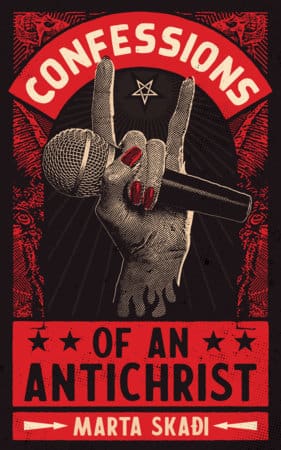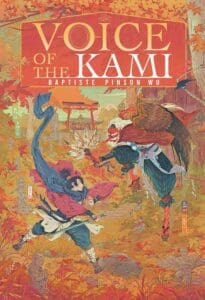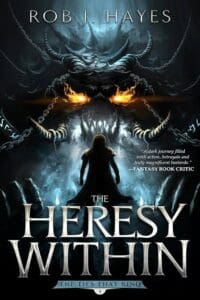
Synopsis
Marta Skaði is on a mission to destroy the world. Rebelling against the perfect, picturesque Norwegian fishing town she was born in, she has formed a black metal band of such disturbing depravity she knows they’re the perfect weapon to corrupt the masses.
When a record deal is dangled before the band after a particularly offensive gig, Marta has to hold the young, wannabe Satanists in her midst together as they reach for their destiny. Not easy when they consist of her ox-brained best friend drummer, a Viking-obsessed bass guitarist, a sex-addicted lead guitarist, and a barely human singer who could well be the Antichrist.
Yet as the record deal seems within reach, everything falls apart. And so begins the spiralling descent into madness of Marta and her strange, sordid group as they corrupt Christians on crosses and battle fascists with dildos, while coming to realise that one of them may be more evil than they realised…
Set in the grungy heavy metal scene of 2010’s Norway, Marta chronicles her descent into chaos and murder, fuelled by thinly veiled lust described as love. From burning down churches to satanic orgies, Confessions of an Antichrist is a fast paced and hair raising story, detailing the gruesome fulfilment of teenage dreams and nightmares.
Review
Confessions of an Antichrist is just what it says on the tin: a fast-moving plunge into a kind of mythical Norwegian Black Metal scene complete with murder, church burning, and complex love triangles. What I wasn’t prepared for was the degree to which it read like a kind of Crying of Lot 49-style surreal freak out. That is to say, it’s deeply funny as long as you like your humor as black as, well, as Norwegian Black Metal.
Marta (yes, the protagonist shares the author’s name, adding to the meta-tinged strangeness of the text) manages a Black Metal band in a small coastal town. The band consists of her oldest friends (and sometime lovers) and also Suffer, the feral Id who fronts the band when not beating up the audience or searching for an innocent to murder.
We follow the band’s ascent, such as it is, intertwined with the narrative of Marta’s machinations to transform the members of the band into characters in her own drama. You know, kind of like the writer. Writing a book. Okay, meta-fiction boxes checked.
That this is all playacting for most of these characters (with the exception of Suffer, who is simply insane) is a great source of humor, and Marta continually attempts to school The Exorcist in the basic tenants of Satanism. The trouble is that The Exorcist is just a big Christian softy who loves his mother.
There are also roving bands of Christian Metalheads and a gang of “Traditional” Black Metal aficionados who have targeted the band. These competing forces sometimes explode into wild and comic violence, but it all feels very distant, almost cartoonish.
So, is this a horror novel? Finally, I think not, though it does tread much of the traditional ground of psychological horror: an unreliable narrator, a focus on guilt and shame (or their supposed absence), and a fascination with self-destruction. But these themes never really connect beyond comic effect, however effective that comedy may be.
In the end, the absolute satanic nihilism proposed is a bit tedious, and the conclusion, which packs several soap opera reveals into the last fifty pages, are mostly confusing. Am I now supposed to take these things seriously? Am I being asked to see Marta as a full character with genuine emotional depth? It’s a conclusion that asks quite a lot of its readers, and that the novel hasn’t necessarily prepared them for.
Rather than revealing that the desires that drove this outlandish plot were actually the same desires that drive every plot, I wish the story had doubled down on its quirky bleakness. Had the plot actually summoned up Ragnarok, I’d have been well prepared for it by all that came before, and I’d have welcomed it, even as a portrait of a dissolving psyche.
Instead, we get a portrait of a choreographed disaster designed solely to shift units, and in the meta-fictional milieu of the novel, that almost feels like an accusation against the reader, as if we were silly enough to fall for the whole goofy ruse.
And maybe we were.








Leave a Reply